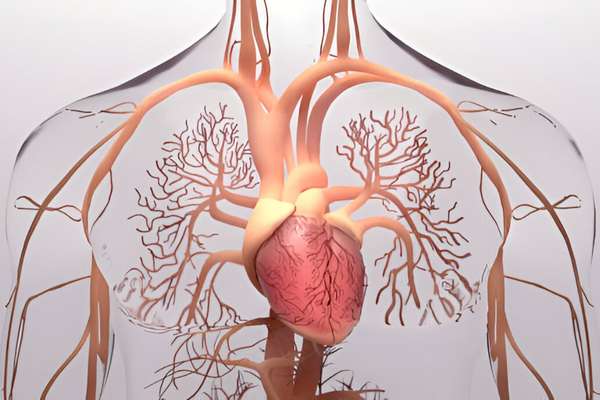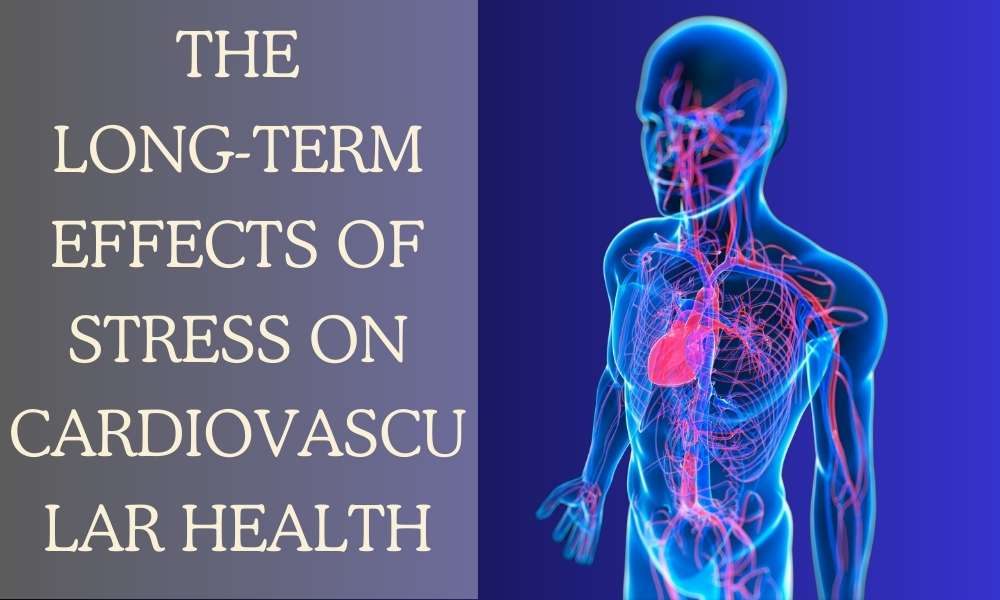Stress is an inevitable part of life, arising from various sources such as work, relationships, and financial pressures. While short-term stress can be beneficial, helping individuals respond to challenges and threats, prolonged or chronic stress can have detrimental effects on the body. Among the systems most affected by stress is the cardiovascular system, which plays a critical role in maintaining overall health. The connection between stress and cardiovascular health has garnered significant attention, as studies reveal how stress triggers a cascade of physiological responses that, over time, can lead to serious heart and vascular conditions. Understanding this relationship is crucial not only for preventing cardiovascular diseases but also for improving quality of life through effective stress management. This exploration delves into the long-term effects of stress on cardiovascular health, the underlying mechanisms, and strategies to mitigate its impact.
Understanding Stress and Its Types

Stress can be widely categorized into types: acute stress and chronic stress. Acute pressure refers to quick-time period, immediate responses to perceived threats or demanding situations, consisting of narrowly warding off an twist of fate or making ready for a presentation. In assessment, continual strain includes extended publicity to stressors, together with ongoing monetary problems, strained relationships, or an unsatisfying work surroundings. Chronic pressure is especially dangerous as it keeps the frame in a nation of heightened alertness, disrupting regular physiological functions through the years.
The body’s response to stress is regulated with the aid of the activation of the hypothalamic-pituitary-adrenal (HPA) axis and the sympathetic anxious system, which collectively release strain hormones like cortisol and adrenaline. These hormones put together the body for a “fight-or-flight” reaction, increasing heart charge, blood pressure, and strength deliver at the same time as suppressing nonessential functions. While these responses are adaptive inside the short time period, persistent activation can cause adverse fitness results.
How Stress Affects the Cardiovascular System

The cardiovascular system is particularly vulnerable to the effects of stress. Acute stress causes temporary increases in heart rate and blood pressure, which, over time, can develop into chronic hypertension if stress becomes persistent. Stress-induced inflammation plays a key role in the development of atherosclerosis, a condition characterized by the buildup of plaques in the arteries, which can lead to heart attacks and strokes. Additionally, the release of stress hormones like cortisol and adrenaline contributes to cardiovascular strain by promoting vasoconstriction, increasing cholesterol levels, and impairing glucose metabolism. These combined effects create a cascade of risks that significantly elevate the likelihood of developing cardiovascular disease, underscoring the importance of mitigating chronic stress.
Long-Term Cardiovascular Risks Associated with Stress
Chronic stress is a significant contributor to long-term cardiovascular health problems. One of the primary risks is the development of hypertension, as prolonged stress keeps blood pressure consistently elevated, straining the heart and arteries. This sustained pressure can damage blood vessels and organs over time, creating a pathway for more severe conditions. Another critical risk is the increased likelihood of developing coronary artery disease (CAD), as stress promotes inflammation and plaque buildup in the arteries, which can restrict blood flow to the heart. These conditions significantly elevate the risk of heart attacks. Furthermore, stress is linked to an elevated risk of strokes and other vascular conditions. The constant wear and tear caused by stress hormones, combined with their effects on blood pressure and inflammation, make the brain and other organs vulnerable to sudden cardiovascular events.
Psychological and Behavioral Factors Linking Stress to Cardiovascular Health
Stress not only has direct physiological effects but also influences behaviors that exacerbate cardiovascular risks. People experiencing stress are more likely to adopt unhealthy lifestyle habits, such as consuming a poor diet, neglecting physical activity, smoking, or abusing alcohol, all of which negatively impact heart health. Additionally, stress often coexists with anxiety and depression, which can compound its effects on cardiovascular health by disrupting normal emotional and physical functioning. Stress also interferes with sleep patterns, causing insomnia or poor-quality sleep, which can further harm cardiovascular health by increasing blood pressure, altering glucose metabolism, and reducing the body’s ability to recover and repair itself. These intertwined psychological and behavioral factors highlight the need for comprehensive stress management to protect cardiovascular well-being.
Populations at Higher Risk
Certain populations are more susceptible to the adverse cardiovascular effects of stress due to biological, social, and environmental factors. Gender differences play a role, with men and women exhibiting distinct stress responses and cardiovascular outcomes; for example, women may be more prone to stress-related emotional conditions like depression, while men often experience direct physiological impacts such as hypertension. Vulnerable groups, including individuals with preexisting conditions like diabetes or heart disease, are at greater risk because their systems are already compromised, making them less resilient to additional stress. Similarly, those with limited access to healthcare face heightened risks, as they may lack resources to manage stress or address its physical consequences. Socioeconomic status further exacerbates these risks, with chronic stressors such as financial instability, unsafe living conditions, and job insecurity disproportionately affecting lower-income populations. These factors underscore the importance of tailored interventions for at-risk groups.
Strategies to Mitigate the Effects of Stress on Cardiovascular Health
Effective strategies to combat the effects of stress on cardiovascular health focus on both psychological and physical interventions. Stress management techniques, such as mindfulness meditation, deep breathing exercises, and cognitive-behavioral therapy, help individuals build coping skills and reduce emotional reactivity. Regular physical activity is another powerful tool, as it not only alleviates stress but also improves heart health by lowering blood pressure and reducing inflammation. A balanced diet rich in whole foods, fruits, vegetables, and omega-3 fatty acids further supports cardiovascular resilience. Social support is equally critical; fostering strong relationships with friends, family, and community can buffer the effects of stress and promote emotional well-being. Building resilience through adaptive coping mechanisms and positive thinking enables individuals to handle stress more effectively, reducing its long-term impact on cardiovascular health.
Read more: Stress Relief at Home
Conclusion
The long-term effects of stress on cardiovascular health are profound and multifaceted, encompassing both direct physiological impacts and indirect influences through unhealthy behaviors and psychological conditions. Chronic stress can contribute to hypertension, coronary artery disease, strokes, and other vascular complications, posing a significant threat to overall health. Certain populations, such as individuals with preexisting conditions, those in lower socioeconomic brackets, and women, are particularly vulnerable, highlighting the need for targeted interventions.
However, the risks associated with stress are not insurmountable. By adopting effective stress management techniques, engaging in regular physical activity, maintaining a healthy diet, and fostering social support networks, individuals can significantly reduce the impact of stress on their cardiovascular health. Prevention and early intervention are key, as is raising awareness about the importance of managing stress as part of a heart-healthy lifestyle. Addressing this challenge not only improves cardiovascular outcomes but also enhances overall well-being, paving the way for a healthier, more resilient future.
We might recomend helpful products and if you buy through our links ,we may earn a commssion.






